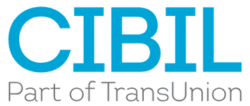Your credit score is a significant indicator of your financial health. A high credit score makes you a low-risk borrower, opening up a lot of loan options at best terms for you. On the other hand, a low credit score makes you a high-risk borrower, limiting your chances of getting a loan approved.
Therefore, developing good credit habits to build, improve and maintain your credit score is crucial for your financial health. It is equally important to avoid common credit mistakes that can slow down your progress and damage your credit score for years to come. Here are some common credit mistakes you should avoid:
1. Not checking your annual credit reports
Your credit report could have wrong information that you might not be aware of. This can harm your credit score. Therefore, make it a rule to get credit report at least once every few months and review it for its accuracy. If you spot any errors, raise a dispute immediately and get them resolved.







